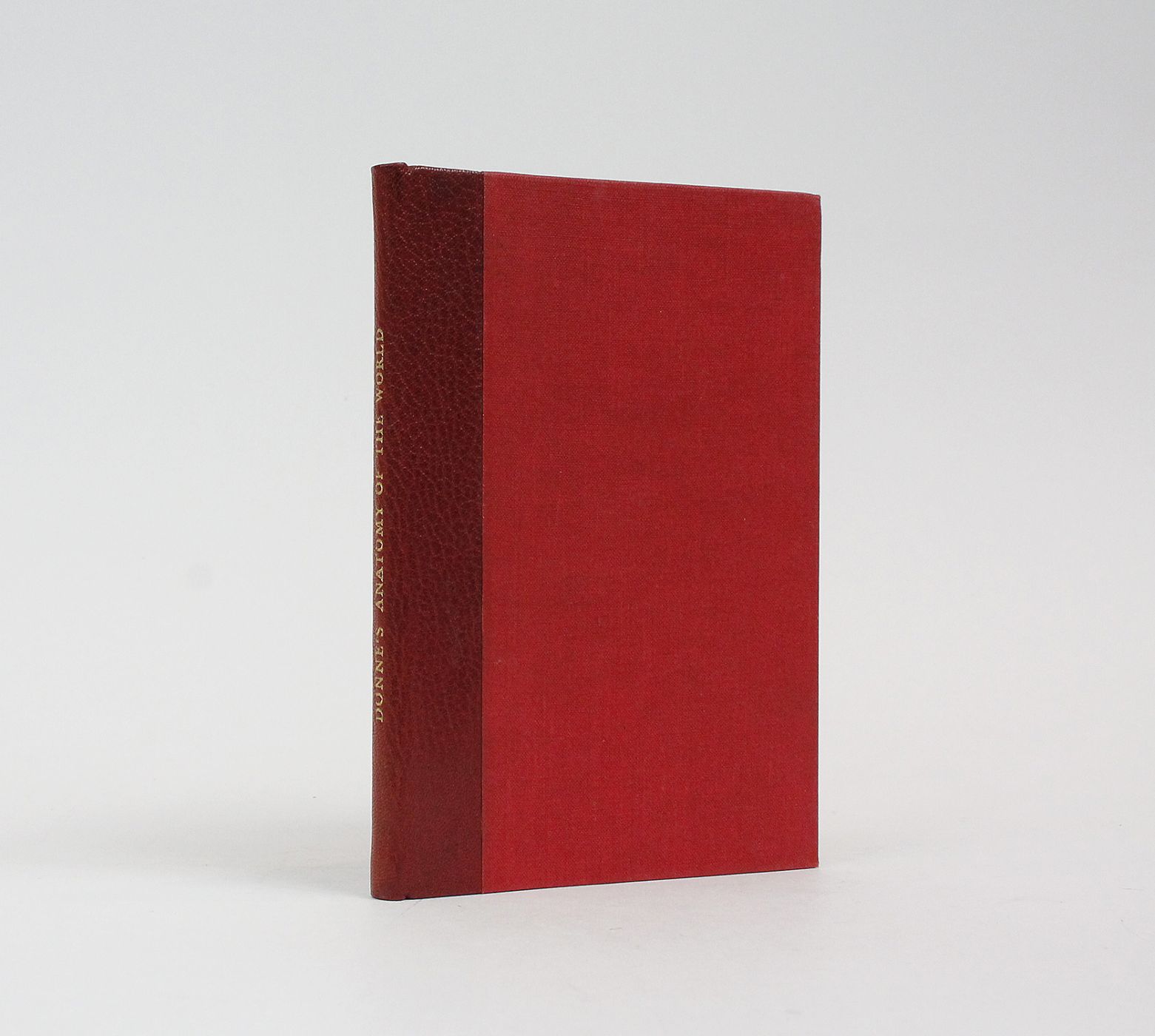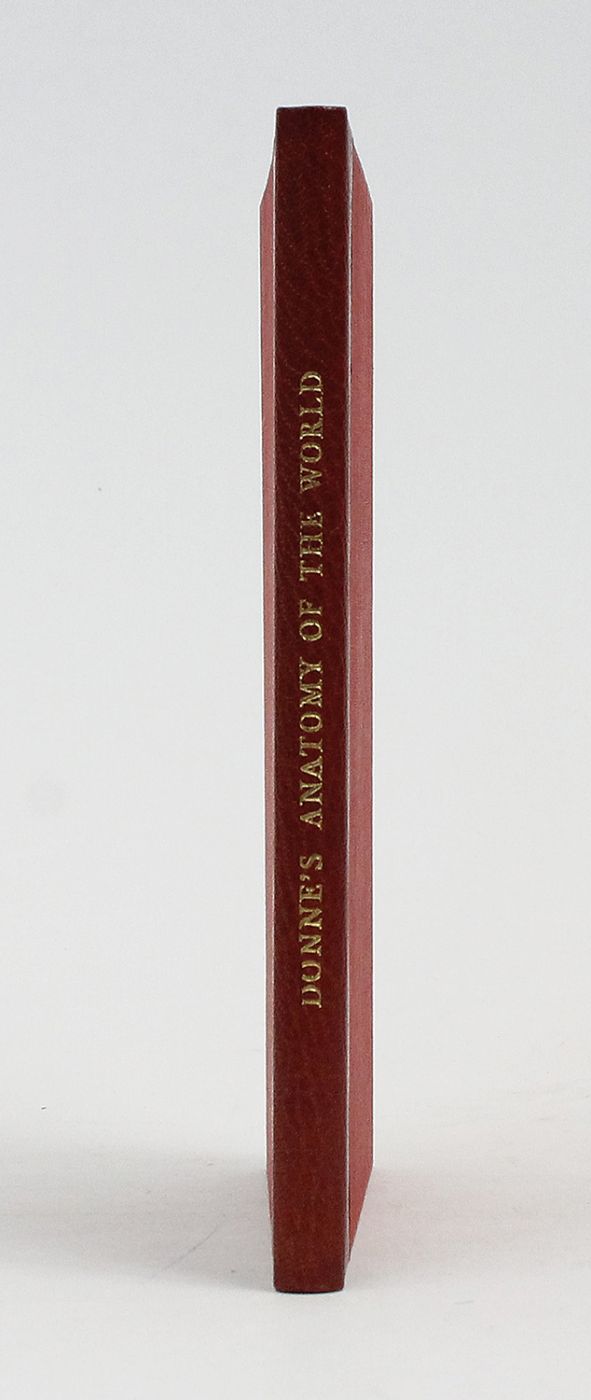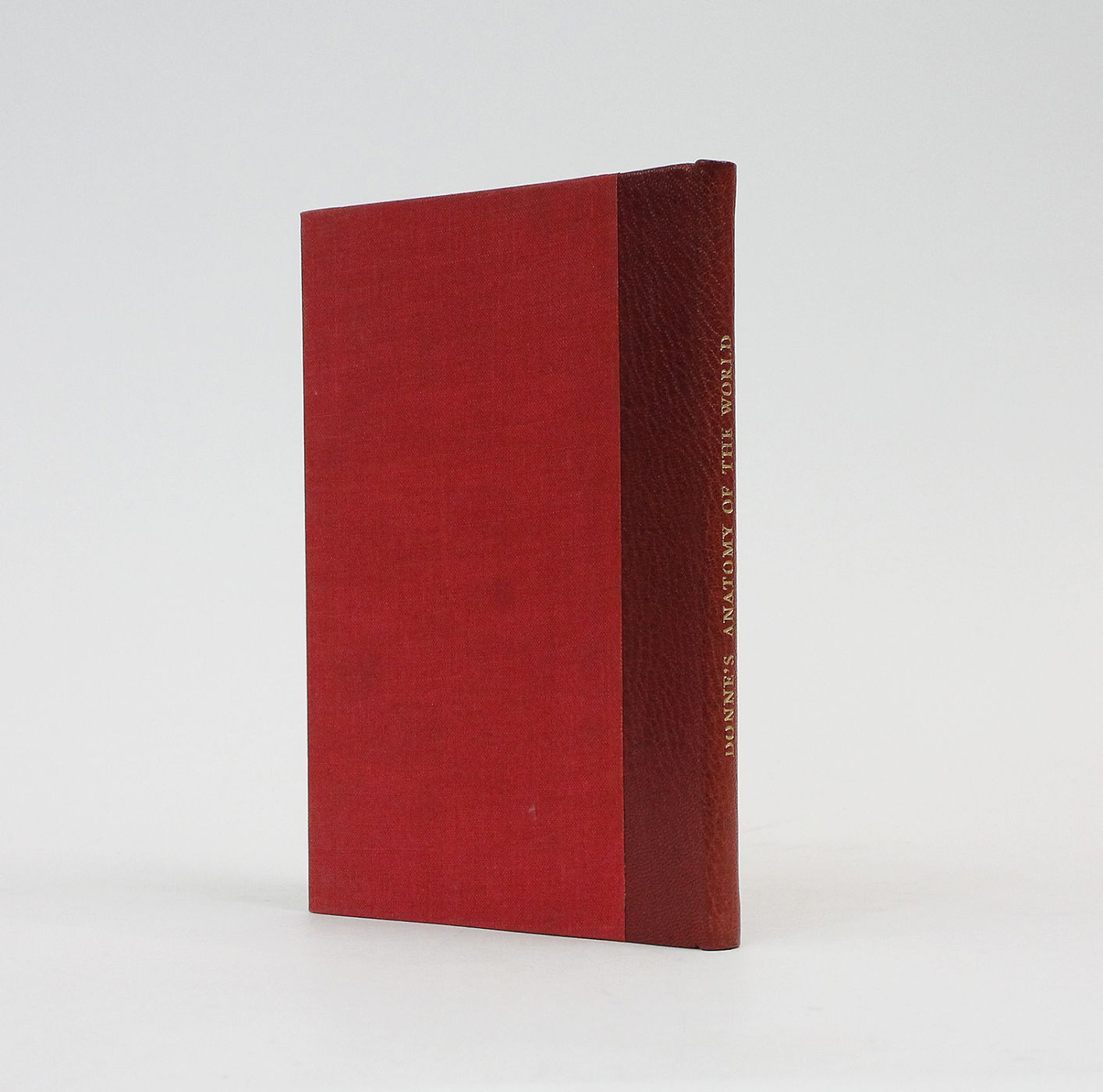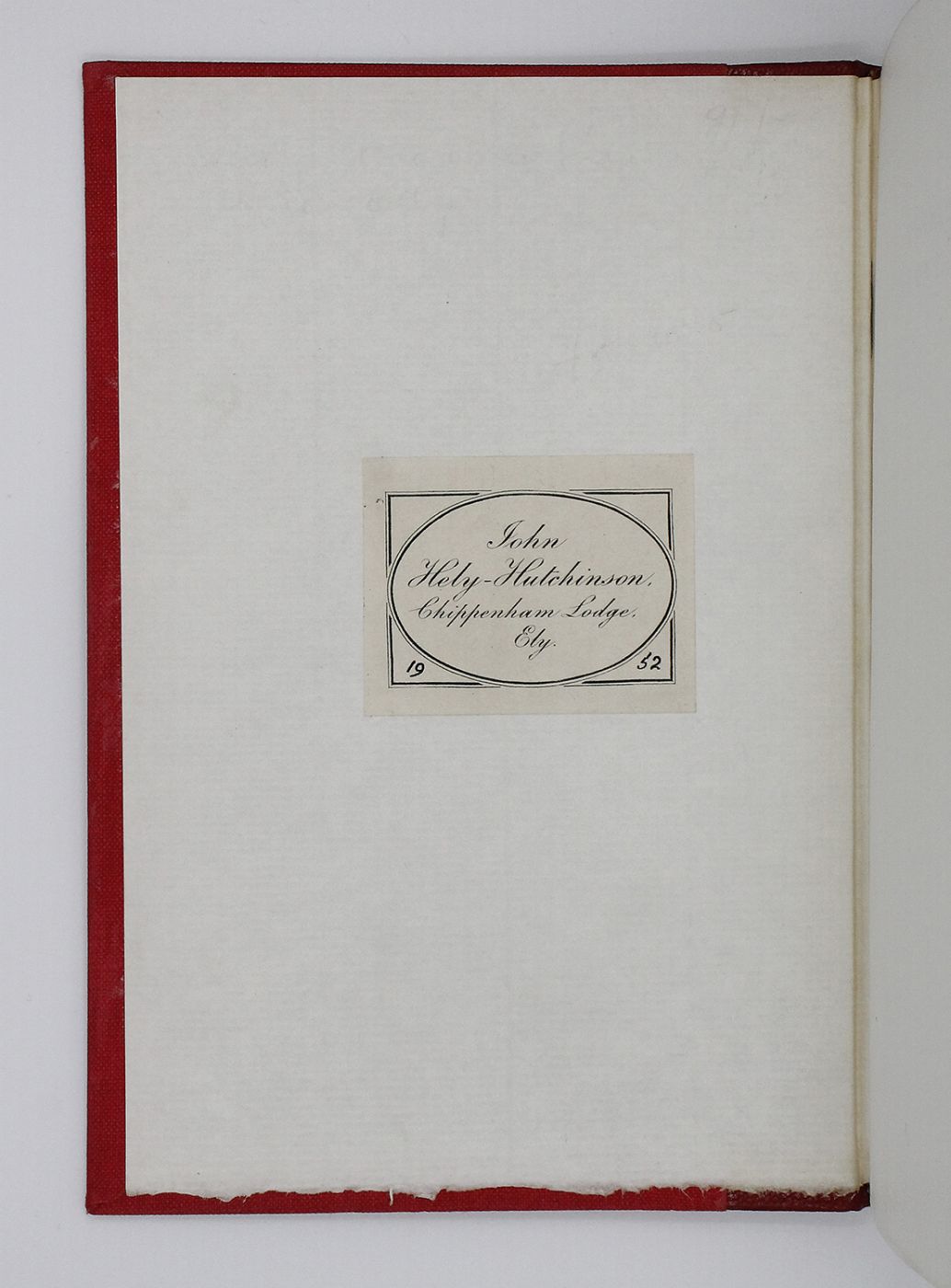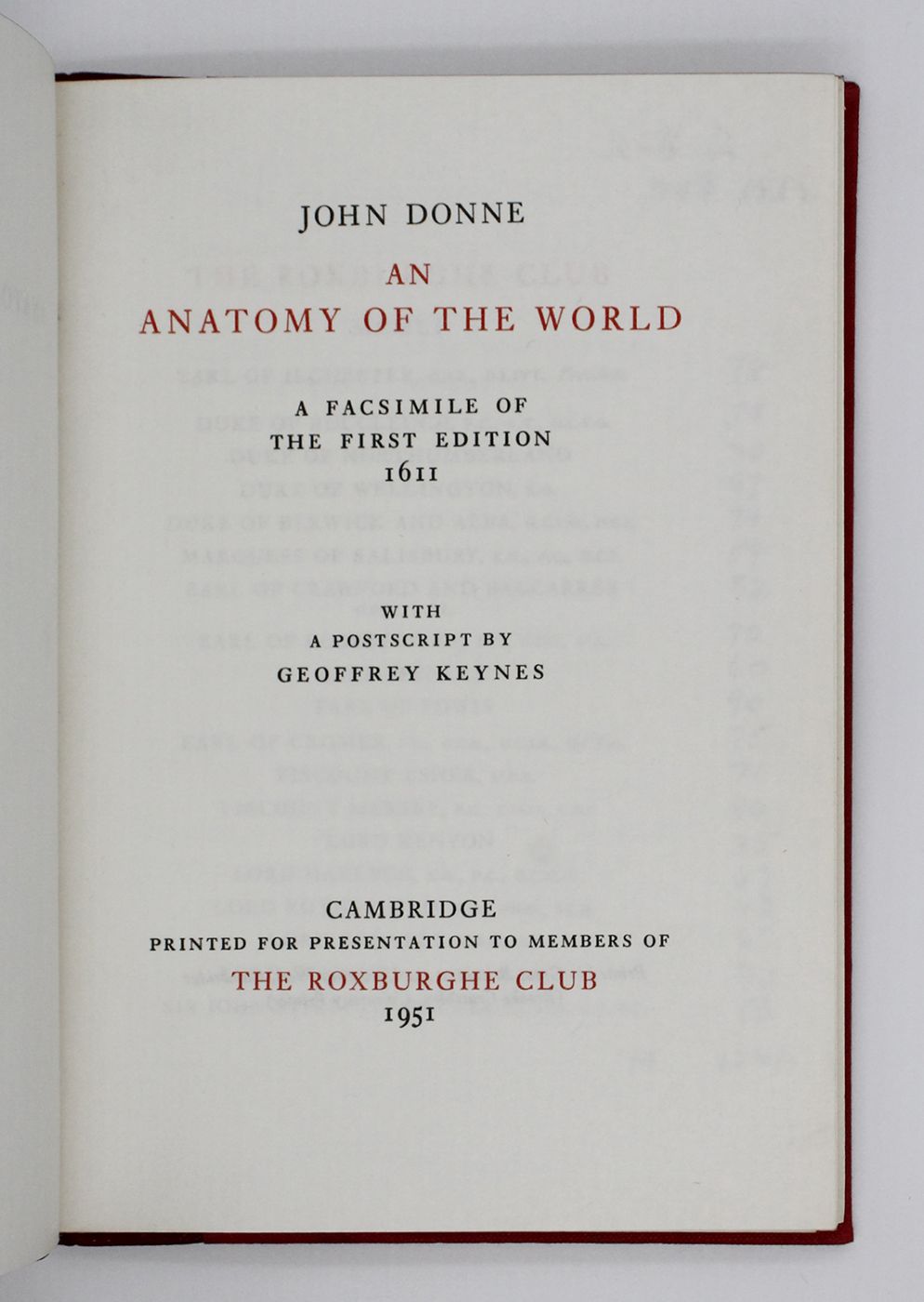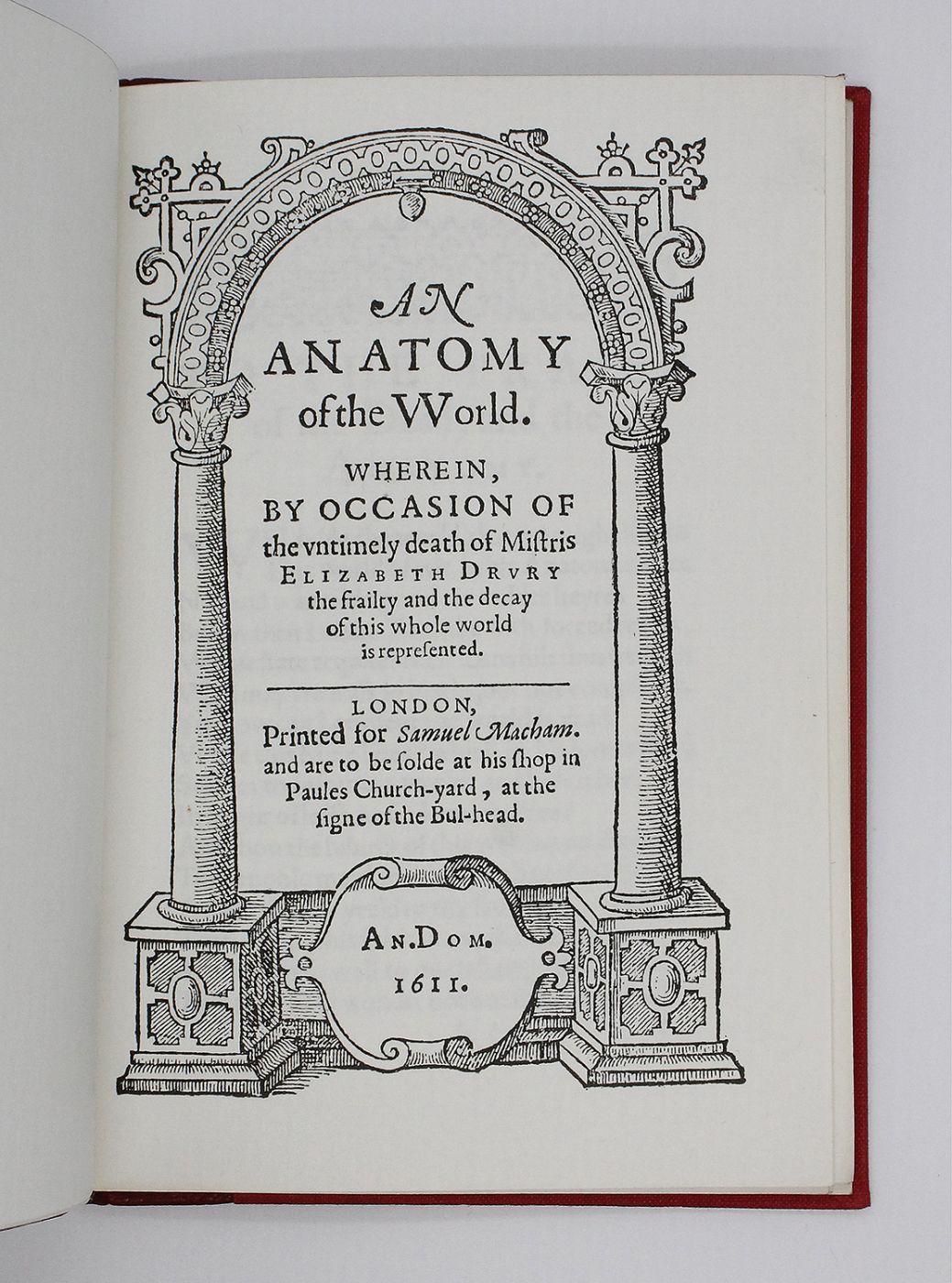AN ANATOMY OF THE WORLD: A Facsimile of the First Edition, 1611.
Limited edition of 120 copies. Original red cloth, quarter-bound in crimson morocco, lettered in gilt to the spine. 12mo. Printed on laid paper at the University Press, Cambridge, by Brooke Crutchley. From the library of the bibliophile and member of the Roxburghe Club, J. W. Hely-Hutchinson (1882-1955), with his bookplate affixed to the front pastedown and his name printed in the list of members following the title page, highlighted in red designating this as his particular copy. A fine, bright copy, the binding square and firm, the contents clean throughout. Hely-Hutchinson, though, has (curiously) written the ages (in 1952) of each listed member of the Roxburghe Club in pencil beside their printed name, before adding the ages together to a grand total of 2674 years which, when divided by 40 (the number of members) means that the average age of members at the time was 67 (66.85, to be exact). A lovely copy of this beautifully produced facsimile of the first of only two poems that Donne allowed to be published during his lifetime.
The poem printed here is better known as 'The First Anniversarie', one of the two extended 'Anniversary' poems that were also the only works that Donne, whose poems circulated widely in manuscript form, allowed to be printed and published during his lifetime. As such, 'An Anatomy of the World', published alone in 1611 (STC 7022), was the first thing he published. According to Geoffrey Keynes, Donne's bibliographer (who provides the postscript to this volume and was himself a member of the Roxburghe Club), only two copies of the original volume have survived, one of which he owned (see pages 5 and 9 of the Postscript). The poem, as the original title page states, was written "by occasion of the untimely death of Mistris Elizabeth Drury". Elizabeth, daughter of Sir Robert Drury, soldier, courtier, and member of parliament, died aged just fifteen in December 1610. Donne had, it seems, met neither Elizabeth nor her influential father, and though it may be true that he was partly motivated to write the poem in the hope of gaining patronage or favour, this elegy for a particular girl is also, as its title suggests and the title page confirms, a forensic presentation of "the frailty and the decay of this whole world". Either way, the poem was gratefully received (and paid for) by Drury, and it was no doubt Drury's influence (and will) that led to the poem and its successor being published. It was a decision that Donne would regret, "Of my Anniversaries", he later wrote, "the fault that I acknowledge in my selfe, is to have descended to print any thing in verse, which though it have excuse even in our times, by men who professe, and practise much gravitie; yet I confesse I wonder how I declined to it, and do not pardon my self". The regret may have been prompted by the allegations of opportunism and even blasphemy that followed publication, Ben Jonson, no less, writing to William Drummond "That he told Mr. Donne, if it [the poem] had been written of the Virgin Marie it had been something, to which he [Donne] answered that he described the Idea of a Woman and not as she was". Elizabeth was, for Donne, a paradigm: the 'best, and first originall / Of all faire copies' as the poem has it. Of the poet and the poem, T. S. Eliot wrote that "insincerity is the last sin of which one would accuse Donne: that is the advantage of being sincerely interested in something else than what you are talking about. It is a meditation upon death." (Keynes 77c).
Stock code: 23061
£225
Category
Modern First EditionsLiterature
Poetry
Private Press / Fine Printing


